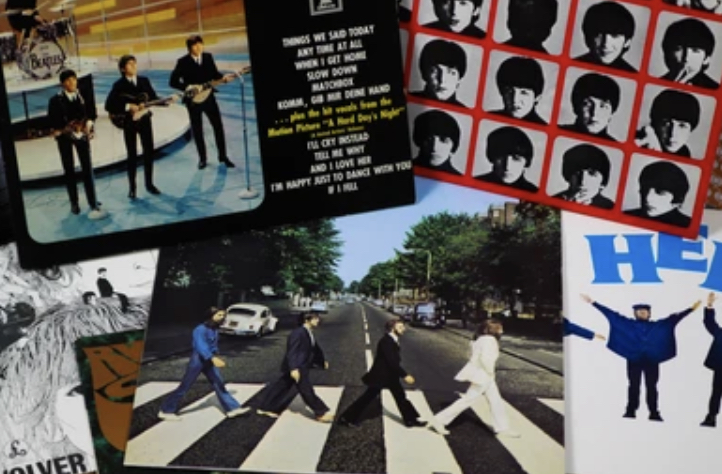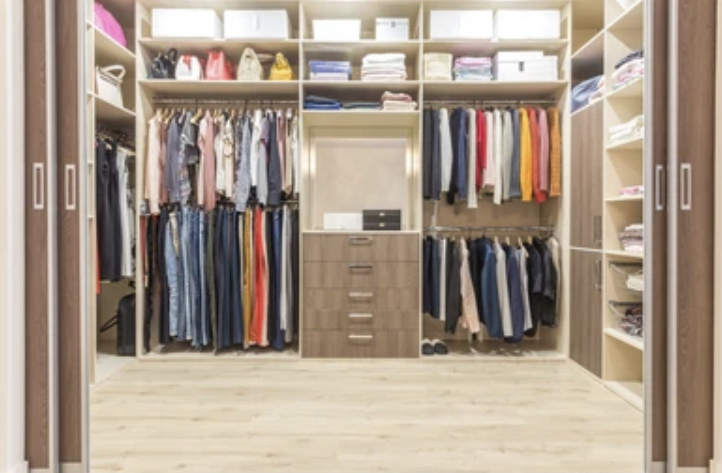It has been said that a personal experience is a universal experience. We react to the sunrise on a beach untroubled by people and to the last leaves that fall from a solitary oak in many of the same ways: hope, perseverance, understanding, a sense of loss. If it stirs passion in your heart, it will likely do so for another. I think there is hope in that.
When my sister and I were young, we lived on an Air Force base in Misawa Japan. Somehow, we managed to get our hands on a record that would change our young lives–The Beatles “A Hard Day’s Night.” Nobody had to tell us this was good music. We jumped and danced with my little 5-year-old heart and my sister’s 8-year-old heart until that poor record was scratched by all the jumping in too close proximity. My sister and I had a personal response to The Beatles that was apparently a universal response unbeknownst to me. As I returned from Japan to another military base in Cheyenne, Wyoming, I asked another 2nd grader, “Have you ever heard of The Beatles? They are great.” I do remember the boy telling me some version of yes, he had heard of The Beatles in circa 1978.

This is throat clearing, a long way to get to the point and that is, we feel better about the spaces in which we live and move when they are cleared of clutter. A personal experience that is universal, and this might be a bit of an overreach, is that the world outside of the spaces we organize begin to feel more orderly. When we clean and declutter it is not just literal cleaning and decluttering. We might be tempted to feel as if we are sublimating and becoming more streamlined ourselves. Maybe we begin to take stock of all the materials in our lives and wonder, What do I really need? What should I keep? When was the last time I wore that T-shirt that now fits like a smedium instead of a medium?
While I might be able to wax poetic about sublimation and decluttering, my desk would suggest I’m willing to live vicariously through my friends who are leaning into minimalism. While I have been tasked with writing about this topic, I am not the guy to divvy out advice concerning the de-Hummeling of grandma’s collection she bequeathed to you or departing with the collection of three modems you keep that no longer connect to any of the hardware you own.

Why do we keep more than we need? Maybe we have some sinking suspicion that we are more when we have more, but I have found the opposite to be true. I think we are so often unhappy not because we do not have enough but rather too much. To have a closet filled with clothes and nothing to wear. A refrigerator filled with food and nothing to eat. A television with access to thousands of hours of viewing and nothing to watch. Maybe the key to happiness is partly found in discovering the art of letting go of the things we don’t need.
I interviewed Audrey Hilliker, a professional in organizing and decluttering, and she shared some valuable insights on how to effectively tackle this task. Audrey has accumulated 20 years of experience organizing and decluttering the homes of friends and family. Initially offering her services on a voluntary basis, she eventually transitioned to charging for these services.
“One common challenge people face is procrastination. They may complete the laundry but struggle to fold and put it away.” Audrey emphasizes the need for a system in place, such as implementing a return-to-place approach. She also recognizes that some individuals simply have too much stuff, leading to a lack of space. To address this issue, Audrey suggests adopting a “one in, one out” policy, where when you acquire new items like pots and pans, you must let go of the old ones.
A crucial aspect of decluttering is convincing people to part with belongings they are hesitant to let go of. Audrey recommends using the rule of thumb: if you haven’t used an item in the past year, it’s time to say goodbye to it. She advises placing these unwanted items in a black trash bag and committing not to retrieve them.
Audrey’s clients have shown progress in their decluttering journey, and she often returns to provide “tune-up” sessions for their homes. As new clothes enter their wardrobe, Audrey encourages them to discard old items, creating a rotation system. She even had the opportunity to work with a hoarder and successfully helped him filter out unnecessary belongings from his life.


To summarize, one practical strategy Audrey suggests is implementing a “one in, one out” rule. For every new item brought into the house, another item must be removed and placed in a bag without dwelling on it. Additionally, Audrey recommends organizing the closet by section, arranging items by style and color to maintain an orderly appearance.
If you need assistance and want to hire a professional organizer, you can contact Audrey here.
Friends, I hope you can find that happy place free from accumulation and the unnecessary of all the things we carry through a lifetime. I believe the rotation policy is something I can begin now. Maybe before the next pair of Simples I purchase I could get rid of the once red now pink-red Converse that are held together by the remnants of glue and pulled stitches. I’ll do it if you will. Drop me a response. Send me a before and after pic of your closet. I’ll be shamed into doing the same and follow your lead.
